6 Key Healthy Foods For Runners!
More and more runners rely on grains, fruits and vegetables as their primary fuel sources – all the way up to elites.
More and more runners rely on grains, fruits and vegetables as their primary fuel sources – all the way up to elites such as ultra-running legend Scott Jurek.
Even runners who don’t want to give up burgers and steaks will find that ramping up their plant intake can help them run strong and recover right. Here are a few easy ways to make the most of plants.
1. Eat All The Colours
A rainbow of produce provides all the nutrients you need. For example, the orange in vegetables such as carrots and butternut means there are high levels of beta-carotene, which ultimately becomes vitamin A – an immunity and eye-health booster. Bright colours also indicate that the food is rich in antioxidants, which can fight Alzheimer’s and heart disease. And studies suggest that when the pigments in produce interact with each other, it maximises the health benefits.
2. Choose the right carbs
In general, runners should consume 50 to 65 per cent of their kilojoules in the form of carbohydrates – the higher your mileage, the higher your percentage. This doesn’t mean all pasta, all the time. You’ll find quality carbs in grains such as quinoa and rice, in potatoes, and yes, in veggies. And eat whole grains, which are almost always the best choice compared with refined grains such as white four, because nutritious B vitamins, iron, magnesium, selenium, and fibre are stripped during the refining process.
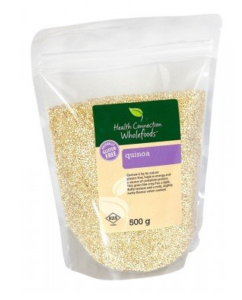
3. Be smart about fat
In addition to making food taste good, fats play a key role in keeping you healthy and boosting performance. Fat is chock-full of vitamins and minerals, and when eaten alongside nutrient-rich foods (such as dark leafy greens), it actually helps your body absorb key nutrients such as vitamins A, D, E, and K.
Avoid trans fats, which are found in processed and fried foods and can lead to heart disease, stroke, type 2 diabetes, and weight gain. Instead, opt for heart-healthy monounsaturated fats found in oils like olive, canola, and sesame seed. Other sources include avocados, nuts, seeds, and nut butters. And the omega-3 fatty acids found in walnuts and flaxseeds are known for their effect on brain and joint health. Runners should aim to get 20 to 35 per cent of their daily kilojoules from unsaturated fats.
4. Don’t skimp on protein.
Protein helps maintain lean muscle mass and repair the microscopic tears and damage in muscle tissue caused by hard workouts. Studies have found that runners who consume the right amount of protein are less likely to get injured. Protein is also associated with a healthy immune system, thanks to its ability to stimulate white blood cells. And because protein takes longer to digest than simple carbohydrates, it helps you feel fuller for longer. Mix and match eggs, dairy, nuts, tofu, lentils, and beans to get the protein you need.
New research recommends that athletes consume 1.2 to 2 grams of protein per kilogram of body weight. Not only is that significantly more than the recommendation for non-runners, it’s more than what was previously recommended for athletes. It’s also important to spread out your protein intake throughout the day, consuming more right before and right after your workouts.
AND DON’T FORGET!
* Vitamin B12: This water-soluble vitamin helps keep the nerve and blood cells healthy, make DNA, and prevent anaemia. Because it’s not naturally found in plant foods, vegetarians and vegans should load up on fortified foods such as orange juice, milk, breads, cereals, and pastas. Check the labels to confirm which foods are fortified.
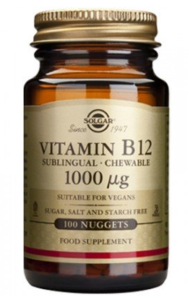
* Iron: Runners, regardless of dietary preferences, are at a higher risk of developing iron deficiency because aerobic activity increases red blood cell count, which demands a higher amount of iron. Red meat and seafood have high levels of iron, but runners who don’t eat meat can increase their iron by consuming whole grains, nuts and seeds, legumes, beans, lentils, tofu, leafy greens, and dried fruit. These foods should be eaten with vitamin C-rich foods to help increase absorption.
Try our favourite hummus spread
In a food processor, combine ¼ cup tahini, 3 Tbsp. lemon juice, 3 cloves chopped garlic, and 1 tsp. salt. Pulse until smooth. Add one 400g tin rinsed and drained chickpeas and 1 Tbsp. diced mild chilli peppers, and pulse to combine. With the food processor running, drizzle in 2 Tbsp. olive oil until a slightly runny paste forms. Add one 400g sweet potato, cooked & pureed, 1 tsp. cumin, and 1 tsp. smoked paprika and process for 1 minute, or until combined and smooth.
Transfer the hummus to a serving bowl. Top with 1 tsp. olive oil, ¼ tsp. paprika, and 2 Tbsp. roasted, salted, and hulled pumpkin seeds.
Want to add more spreads into your diet? Check out these delicious seed and nut-based spreads.
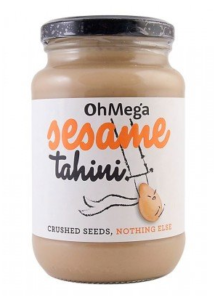
BUY NOW: Oh Mega Sesame Tahini, R89
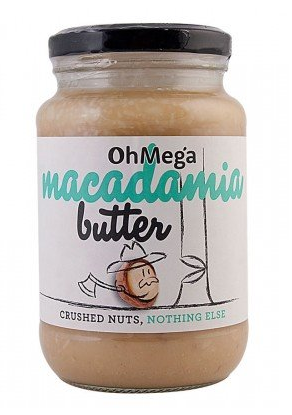
BUY NOW: Oh Mega Macadamia Nut Butter, R120
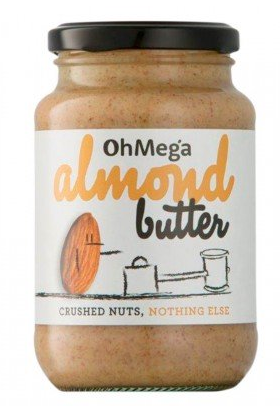
BUY NOW: Oh Mega Almond Nut Butter, R119
Excerpted from The Runner’s World Vegetarian Cookbook. Copyright © 2018 by Hearst Magazines. Published by Rodale Books and available at takealot.com.
READ MORE ON: nutrition plant-based seed

